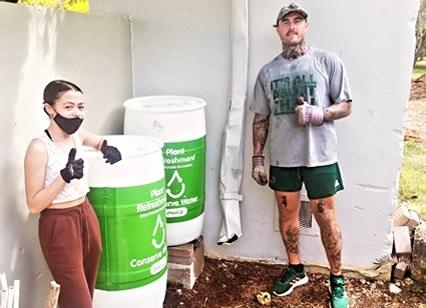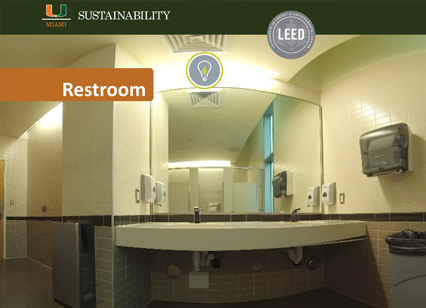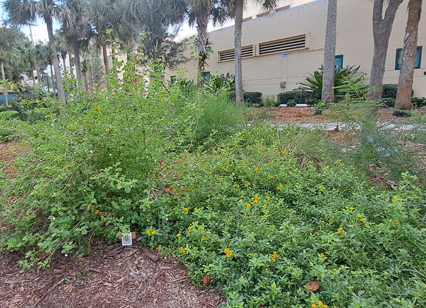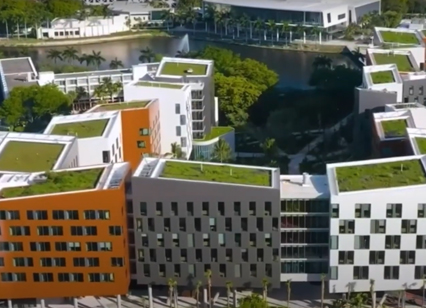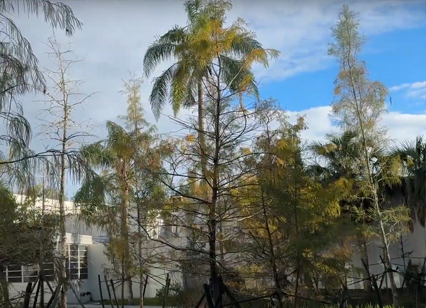The University of Miami is constantly looking for ways to reduce water use. Our Facilities department has adopted best practices and technologies to optimize the campus’ water use and further promote the University’s water conservation efforts despite a constant growth in demand.
All new buildings are LEED Silver at a minimum, and LEED certified buildings are performing at least 40% better in water consumption than standard building of the same size.
Many LEED building achieve good rating on water conservation thanks to dedicated Native landscaping and Xeriscape best practices.
CORAL GABLES
WATER SYSTEMS IMPROVEMENTS on CAMPUS
The department has implemented aggressive practices and technologies to optimize the campus’s water use and further promote the University’s water conservation efforts.
Our initiatives in this area include:
• The replacement of all resident halls and apartments shower heads to low flow models.
• The installation of timer setting controls on the campus irrigation systems.
• An ongoing aggressive leak detection program to prevent excessive water consumption.
• An ongoing replacement program of urinals and toilets to low flow models.
• An ongoing conversion of campus irrigation systems to well water in lieu of domestic water usage.
Rainwater harvesting:
The Sustainable Garden located at the edge of the Coral Gables campus Gifford Arboretum saves water by using rain barrels for its irrigation needs. The main advancement in water conservation has been the installation of a rainwater harvesting system in the Frost School of Music Studio LEED Platinum building that provides for all its non-drinking water demand, toilets flushing included.
On the RSMAS campus, a closed loop system has been installed in the Chiller plant: 90% of condensate water is recirculated in the system as makeup water for the cooling towers. Submeters have been installed to measure the percentage of condensate in the mix, generating an average of 300 gallons per day or 10% of the cooling tower demand.
To learn more about how you can conserve water, visit Miami Dade County - Water Conservation Tips link
 |
|
World Water Day is an annual United Nations (UN) observance day, which highlights the importance of water. The day is used to advocate for the sustainable management of water resources.
Meet Barbara McAdam and Laura Vasquez on March 22 from 12-1 p.m. Barbara and Laura are both urban horticulture program specialists at the UF/IFAS/Extension Miami Dade County Office. Recording
|




